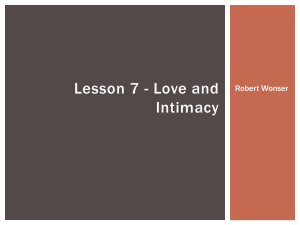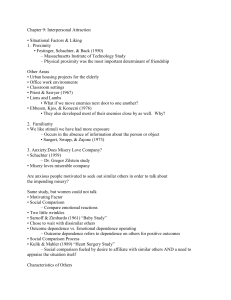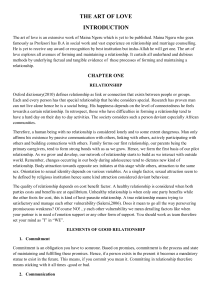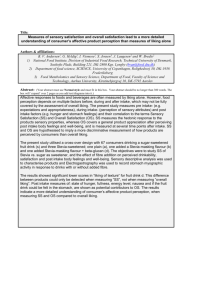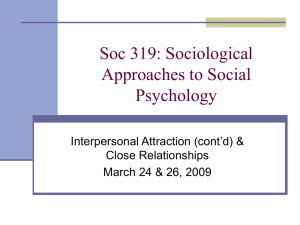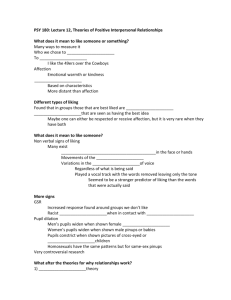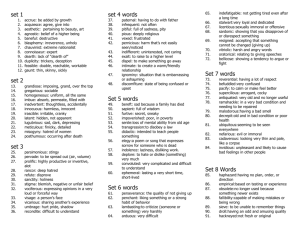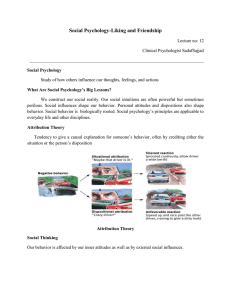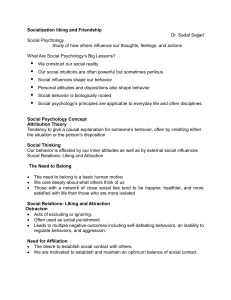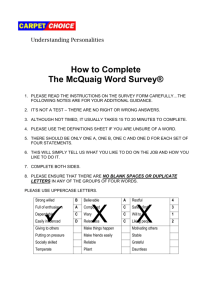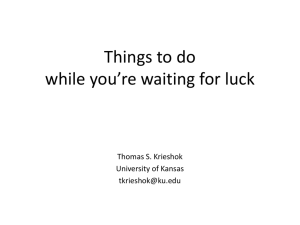Why Don*t Students Like English Class?
advertisement
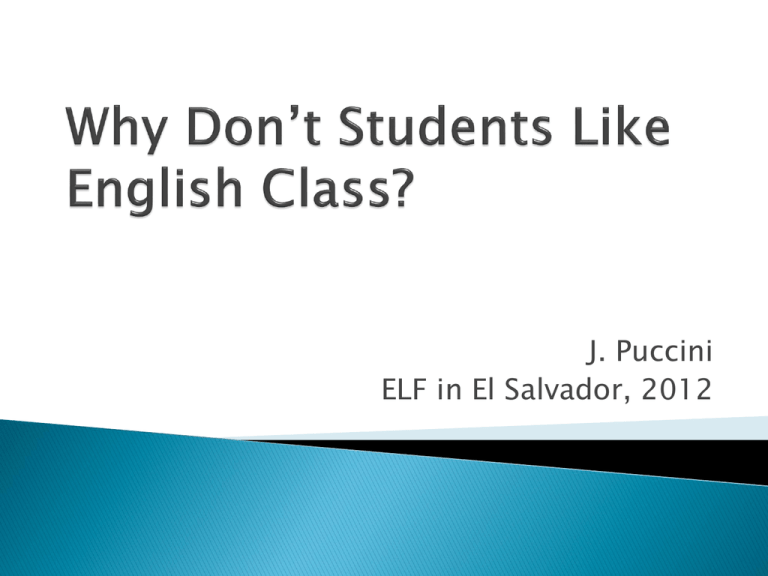
J. Puccini ELF in El Salvador, 2012 What kind of person are you? Do you prefer… To vacation at the beach OR in the mountains Cats OR dogs Saturday nights out OR at home How did you like the activity? How do you think it might help students’ learning and/or participation? How might you adapt it? Your ideas and experiences 6 reasons and some possible solutions suggested by research Conclusion Q&A To explain different answers to the question (why don’t Ss like English class?) To describe ways to help solve the “puzzle” What explanations do you have for the question, “Why don’t students like English class?” Example, “Many students just don’t think English is important. How Learning Works. Susan Ambrose, et al.,2010. Switch. Chip & Dan Heath, 2010. “Ten Commandments…” Zoltan Dornyei and Csizer, 1998. Why Don’t Students Like School? Daniel Willingham, 2009. Broader: 1. Society 2. The subject (English) 3. Classroom environment Narrower 1. Peers 2. Students’ history 3. The teacher How might society contribute to students’ not liking English? How might the subject, English, contribute to students’ not liking English? How might the classroom envirnonment contribute to students’ not liking English? English is not important (compared to math, science, and other subjects) The rider, elephant, and path (Switch) Example: the $1,000,000,000 gloves English is boring (grammar rules, reading, topics unrelated to Ss reality) What makes language classes interesting? Classrooms are dark, uncomfortable places From Social-psychology: ◦ Broken Windows theory What reasons did Jeff talk about? What solutions does the research suggest? What ideas seem most useful for you and your context? In other words, what is something specific you can do? How might peers contribute to students’ not liking English? How might students’ history contribute to students’ not liking English? How might the teacher contribute to students’ not liking English? The rider, elephant, and path (Switch) Example: malnurished children in Vietnam Poor practice failures Good practice successes “Learning is best encouraged when students’ practice includes 4 points” (Ambrose, et al.) ◦ ◦ ◦ ◦ Goal Challenge level Quantity/frequency Feedback Zoltan Dornyei’s, “10 Commandments” 6. 5. 4. 3. 2. 1. Make classes interesting Increase Ss linguistic self-confidence Develop good relationships Clear instructions Classroom atmosphere T as personal example How Learning Works: “Ss motivation determines, directs, and sustains what they do to learn.” What reasons did Jeff talk about? What solutions does the research suggest? What ideas seem most useful for you and your context? In other words, what is something specific you can do? Cognitive science and social-psychology have shown us that The possible reasons why students don’t like English are countless The human mind is built to find simple, easy answers They don’t like English because they are _____ My team lost the game because the coach _______ Our party lost the election because the other side _________ This is how the our minds work because we crave coherent stories. The answer to our question is not one simple, coherent story. There is no one magic formula or solution. When the door closes, there is just me and my students. What steps will I take? What insights have you had? What steps might you take? What questions do you still have? Materials available: jspuccini.com Contact me: jspuccini@yahoo.com
